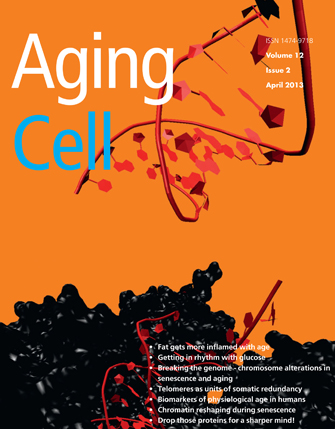
Like an old car that gradually rusts as it ages, even if there is no lethal damage to a critical part of the car, a human body accumulates genetic damage as it becomes older.
For the first time, research at the Keck School of Medicine of USC showed evidence that cell mutations increase with age, causing supposedly identical cells to diverge genetically. The report is featured as the cover article in the April issue of the journal Aging Cell.
“We’ve suspected for a long time that there are genetic deviations in cells even from birth,” said Michael Lieber, Rita and Edward Polusky Professor in Basic Cancer Research. “This is true even when the cells should be identical,” such as two cells from the same organ of one person.
Because technology is not currently capable of analyzing the genome of one individual cell, there previously was no good method to detect genetic deviations from one cell to the next. The structure of the colon, or large intestine, provided a way to overcome this limitation, an insight originally suggested to Lieber by Darryl Shibata, professor of pathology at the Keck School and the USC Norris Comprehensive Cancer Center.
The lining of the colon is made up of crypts, sections composed of about 2,000 cell clones. The researchers were able to analyze and compare the genome of crypts from different areas of the same person’s colon.
Examining cell samples from people across a spectrum of ages, the researchers found that mutations — chromosome deletions, duplications and other consequences of chromosome breaks — were significantly more frequent in colons from older individuals.
“We are literally falling apart as we age because our cells are falling apart, or diverging, genetically,” Lieber said. “Most of the mutations make us function less well.”
In the colon, genetic mutations are implicated in cancer, and the mutations increase in cases of severe inflammatory bowel disease. Cell divergence in other parts of the body may play a role in other diseases as well.
“Our article allows researchers to put the question [about the increasing divergence of cells with age] to rest and move on to other areas that will help people,” he said. “This allows us to focus on ideas that might work, such as ways to stop specific cancers.”
John Hsieh, David Van Den Berg, Haeyoun Kang and Chih-Lin Hsieh were other authors of the article. The work was supported primarily by a grant from The Ellison Medical Foundation.
See more at news.usc.edu/#!/article/48089/usc-researchers-show-increase-of-cell-mutations-with-age.
